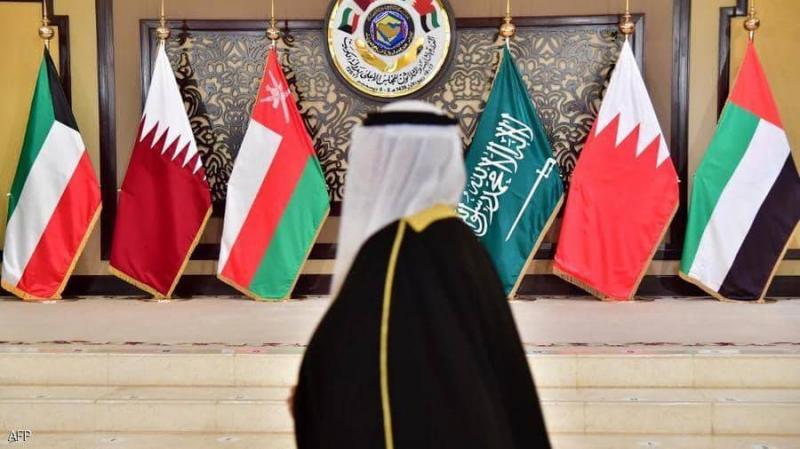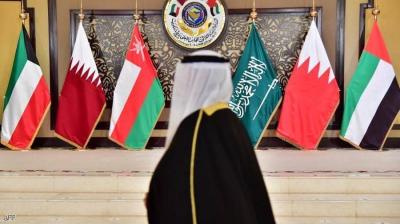Lebanese Minister of Information George Qardahi sparked a storm of controversy and criticism following his statements regarding the Yemen crisis. Several countries and organizations condemned Qardahi's comments, which positioned him as a defender of the Iran-backed Houthi militia. Lebanese Prime Minister Najib Mikati quickly moved to contain Qardahi's statements, expressing his rejection of them.
In a statement published by the National News Agency, Mikati said, "Regarding the remarks made by Minister of Information George Qardahi, which are circulating and come from an interview conducted with him weeks before he assumed his ministerial position, they are unacceptable and do not express the government's position at all, especially regarding the Yemeni issue and Lebanon's relations with its Arab brothers, specifically our brothers in the Kingdom of Saudi Arabia and all Gulf Cooperation Council countries."
Following this, the Saudi Foreign Ministry announced the summoning of the Lebanese ambassador to protest Qardahi's statements. The Saudi Foreign Ministry wrote on its official Twitter account: "The Ministry of Foreign Affairs summons the Ambassador of the Lebanese Republic to the Kingdom and hands him a formal letter of protest following the offensive remarks made by the Lebanese Minister of Information regarding the legitimate support coalition's efforts in Yemen."
The statement expressed, "The Ministry of Foreign Affairs regrets the offenses contained in those statements toward the Kingdom and the countries of the coalition supporting legitimacy in Yemen, which represent a clear bias towards the Houthi terrorist militias that threaten the security and stability of the region."
The Saudi Foreign Ministry emphasized that "Qardahi's statements are inconsistent with the simplest political norms and do not align with the historical relations between the two brotherly peoples." It continued: "Due to the possible repercussions of those offensive statements on relations between the two countries, the Ministry of Foreign Affairs summoned the esteemed Ambassador of the Lebanese Republic to the Kingdom of Saudi Arabia and delivered to him a formal letter of protest in this regard."
For its part, the United Arab Emirates strongly denounced the remarks made by the Lebanese Minister of Information against the coalition supporting legitimacy led by Saudi Arabia in Yemen. The Ministry of Foreign Affairs and International Cooperation expressed "its strong condemnation and disapproval of these disgraceful and biased remarks made by George Qardahi, which offended the countries of the coalition supporting legitimacy in Yemen," according to the UAE News Agency.
The Ministry of Foreign Affairs and International Cooperation summoned "the Ambassador of the Lebanese Republic to the state and informed him of its protest and disapproval of these statements, which are considered a departure from diplomatic norms and the historical relations of Lebanon with the countries of the Arab coalition supporting legitimacy in Yemen, indicating Lebanon's increasing distance from its Arab brothers."
The Kuwaiti Foreign Ministry also announced on Wednesday the summoning of the Lebanese chargé d'affaires, stating, "The Ministry of Foreign Affairs, in a statement today, expressed Kuwait's strong condemnation and rejection of the media statements issued by the Lebanese Minister of Information towards the Kingdom of Saudi Arabia and the sisterly United Arab Emirates, in which he accused the two brotherly countries of false accusations that contradict the significant and appreciated role they play in supporting Yemen and its people."
The statement highlighted that Qardahi's remarks "did not reflect the true reality of the current situation in Yemen and represent a departure from the official position of the Lebanese government while neglecting the crucial role of the Kingdom of Saudi Arabia and the United Arab Emirates and the Arab coalition in supporting legitimacy in Yemen."
In Bahrain, the Foreign Ministry summoned the Lebanese ambassador and presented a letter of protest expressing the kingdom's strong disapproval of the statements made by the Lebanese Minister of Information towards Saudi Arabia and the United Arab Emirates, including the false claims regarding the course of the war in Yemen that are refuted by documented facts and internationally established evidence.
The ministry confirmed in its memo that the crimes and violations committed by the Houthi terrorist group against the Republic of Yemen and its brotherly people, as well as their ongoing assaults on the Kingdom of Saudi Arabia since their unlawful coup against the government, undermine these irresponsible statements that violate diplomatic norms and represent a deliberate offense to the countries of the coalition supporting legitimacy in Yemen while disregarding the principles and values that govern brotherly relations among Arab states.
For his part, Yemeni Foreign Minister Ahmad bin Mubarak directed the Yemeni ambassador in Beirut to deliver a letter of condemnation regarding Qardahi's statements to the Lebanese Foreign Ministry. Bin Mubarak stated that these remarks represent a deviation from the clear Lebanese stance toward Yemen and condemnation of the Houthi coup, as well as support for all relevant Arab and international resolutions.
The Secretary-General of the Gulf Cooperation Council, Naif Falah Mubarak al-Hajraf, also expressed his complete rejection of the Lebanese Minister of Information's statements, stating that they reflect a limited understanding and superficial reading of the events in Yemen. He called on the Lebanese Minister of Information to return to the historical facts and trace their sequence to understand the significant support provided by the Arab coalition countries led by Saudi Arabia to support legitimacy for the Yemeni people in all domains, aiming to achieve a comprehensive solution to the Yemen crisis according to the three reference points represented by the Gulf Initiative and its executive mechanism, the outcomes of the Yemeni dialogue, and Security Council Resolution 2216.




